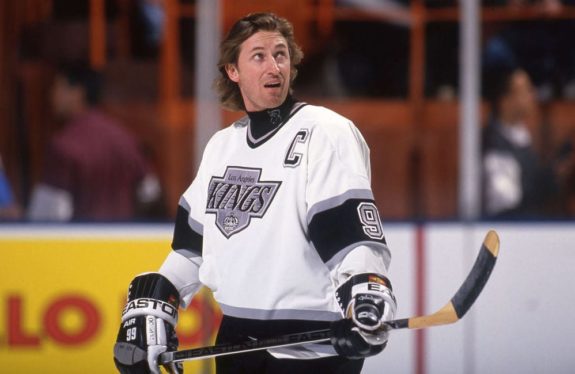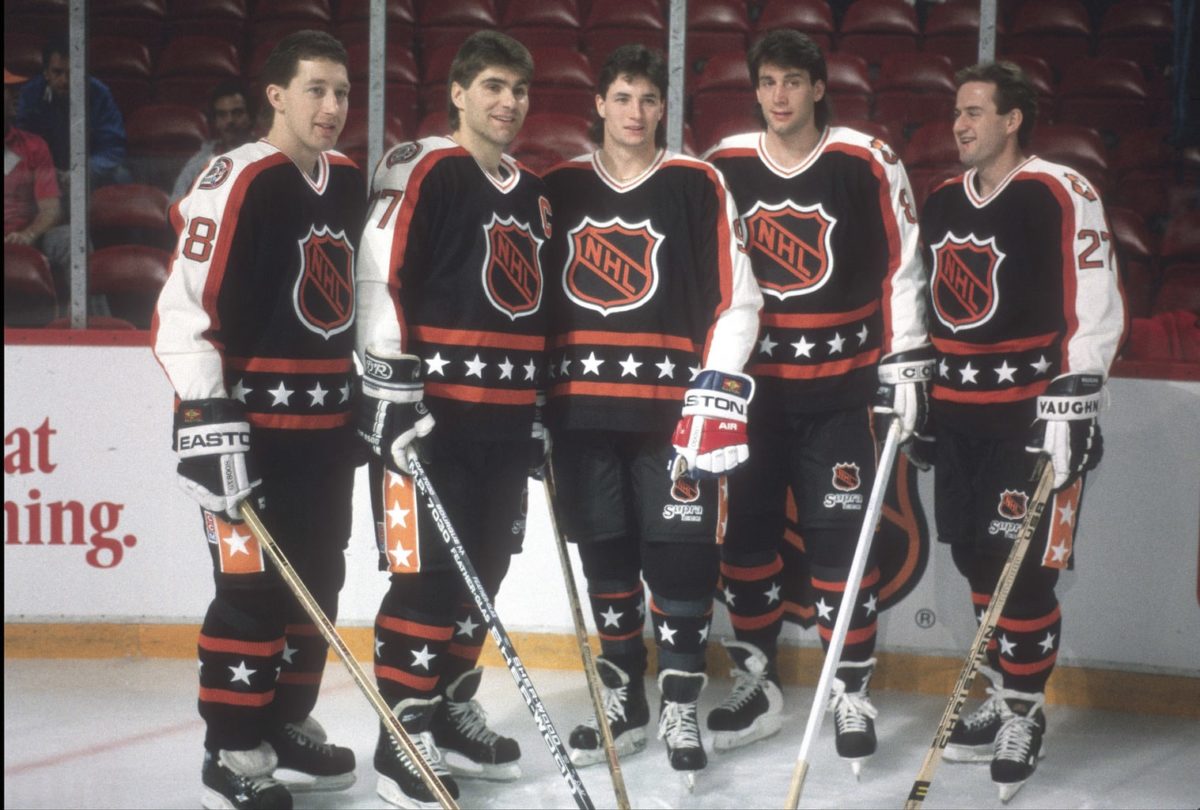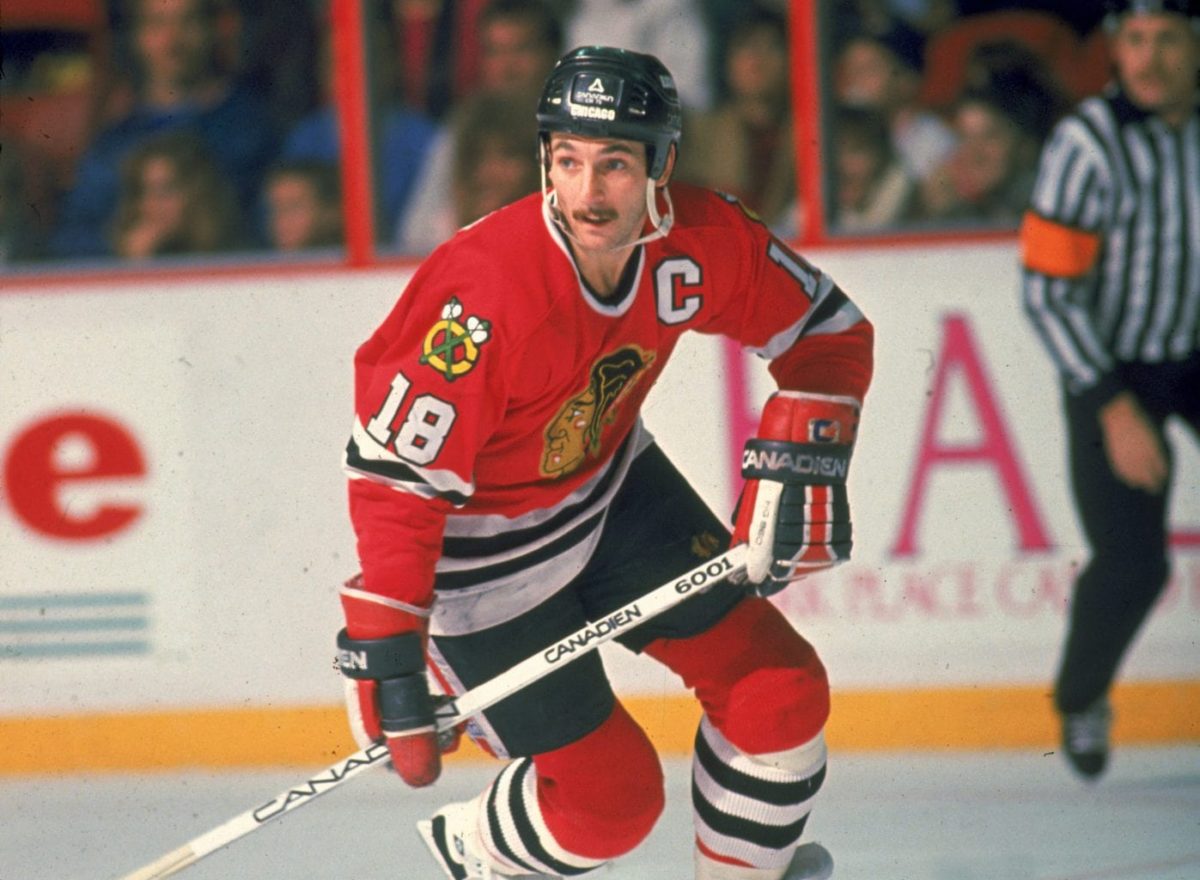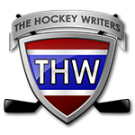The face of the league had made his feelings clear.
It was just a couple of days prior to the 1991 National Hockey League All-Star Game that a United States-led coalition launched Operation Desert Storm to expel occupying Iraqi forces from Kuwait.
The military operation began at 3 a.m. Baghdad time on Jan. 17 with airstrikes on Iraqi military and government targets.
Many wondered about sport’s place in a world that was now experiencing war, and when it came to the NHL’s mid-season classic, Wayne Gretzky did not think the game should be played.

“It doesn’t seem right that we’re having a good time while our soldiers are risking their lives,” the then-Los Angeles Kings captain said, per Blackhawks Team Historian Bob Verdi on NHL.com.
The Great One was not alone in those sentiments, but they were not necessarily shared inside the league’s head office, from where NHL president John Ziegler gave a prepared statement:
“The 42nd NHL All-Star Game is scheduled to go forward as planned. The expressed policy of the United States in World War II was that professional sports, as well as all business and entertainment, carry on. The same was true for the Korean and Vietnam conflicts,” the statement read.
“We will take our guidance from the President of the United States as to the All-Star game, and from both the President and Prime Minister of Canada as to our regular schedule. We have had no indication or signal from the governments that they would wish us not to go forward.”
(from ‘Injury Sidelines Blues’ Brett Hull’, Los Angeles Times, 1/19/91).
And thus it was on Saturday, Jan. 19, at noon local time, the historic Chicago Stadium hosted what was the first big event in sports since the launch of Desert Storm.
The Campbell and Wales Conference All-Stars took to the ice wearing helmets adorned with a United Nations flag decal. As they lined up on their respective blue lines, a moment of silence was held to recognize those serving in the Persian Gulf, prior to the national anthems.
An Anthem for the Ages
Wayne Messmer then performed O Canada and the Star-Spangled Banner, in what has been called one of the best NHL all-star moments and one of the most iconic moments in Chicago sports history.
The crowd, many waving flags or displaying banners supporting troops, nearly tore the roof off the Madhouse on Madison during the U.S. anthem.
“I was standing next to Mark Messier during the anthems,” Gretzky recalled in an article on NHL.com.
“I said to him, ‘this is unbelievable.’ I’ve heard it as loud here before when we came into Chicago with the Edmonton Oilers. But never as emotional. The flags of both countries, the banners, the vibrations. You could tell that the fans, like us, were thinking of other things. There was such a mood in that rink, such patriotism. It was good for hockey. It was a good show, period.”
In an interview with NBC Sports Chicago, singer Messner said he believes that was the hockey world’s introduction to Chicago fans’ now-famous tradition of cheering during the Star-Spangled Banner.
Broadcast for Service Personnel
The game was broadcast live on TSN in Canada and in the United States on NBC, which broke away from coverage in the third period to show a Pentagon briefing on the Gulf War. It was also televised to service personnel in the Persian Gulf.
Gretzky’s Campbell Conference squad won 11-5, with forward Vincent Damphousse (then of the Toronto Maple Leafs) taking home MVP honors after scoring four goals, including three in the third period. Pat LaFontaine was the only other player to score multiple goals, potting two for the Wales Conference.

“The people sacrificing their lives are the All-Stars,” said LaFontaine, who was representing the New York Islanders, told the New York Times.
“We’re playing games and having fun.” (from ‘War on All-Stars’ Minds’, The New York Times, 1/20/91).
Moments to Remember
Some of the more memorable moments saw Chicago fans serenading Campbell Conference goalie Bill Ranford with chants of “Eddie.” Ranford had been selected to the game by All-Star coach John Muckler – who at the time also happened to be his coach with the Oilers – over Ed Belfour, Blackhawks goalie and hometown favorite. Belfour, who himself had expressed displeasure over the perceived snub, actually sat in the crowd for the afternoon.
The Chicago faithful was much more sincere in saluting Denis Savard, who was making his return to the rink where he had spent 10 incredible years with the Blackhawks before being sent to Montreal in a deal for fellow All-Star Chris Chelios the prior summer.
Savard had been very sick with the flu and said he wouldn’t have played if the game was in any other city.

“What noise,” NHL.com quotes Gretzky as saying post-game. “I still feel the same as I did before. It doesn’t seem right that we’re here having a good time while soldiers are risking their lives in the Persian Gulf. Between periods we came down to the locker room to watch the news updates.
“But there was such a mood in that rink, it was good for hockey. It was a good show, period. I love this building. The best in the league to visit. Today was just unreal. The bedsheets, the spirit, the moment of silence before the game. The only moment of silence. I’m Canadian, but like I was saying to Messier on the blue line, these Americans really know how to rally behind a cause.”
Game Set Tone for Sports World
The game was a rare instance of the NHL setting the tone for the rest of the sports world. The next day, the National Football League held its conference championships, followed a week later by the Super Bowl (which featured a national anthem even more famous than Messner’s performance, Whitney Houston’s epic rendition of the Star-Spangled Banner). The Gulf War was also front of mind at the National Basketball Association’s All-Star Weekend in early February 1991.
How would the NHL, and the sports world in general, handle a similar situation today?
On this 30th anniversary of the 1991 NHL All-Star Game, it’s an interesting question, especially in light of how sports have responded to real-world events over the past year.
